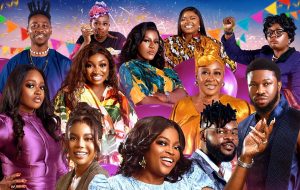African American duo launch ‘Go back to Africa’ campaign to take hatred out of slur
(CNN) — Most black people living in the US or Europe will have heard the phrase “Go back to Africa,” at least once in their lives. The racist slur has long been used as a putdown to suggest they don’t belong in the west. On Sunday, President Trump used a variation of the insult to tell four congresswomen in a series of tweets to “go back and help fix the totally broken and crime infested places from which they came. Then come back and show us how it is done.” While not explicitly naming Reps. Alexandria Ocasio-Cortez of New York, Rashida Tlaib of Michigan, Ilhan Omar of Minnesota and Ayanna Pressley of Massachusetts — the congresswomen, who are all women of color, were clearly the targets. Only one of these four women was not born in the US.The President denied his comments were racist and has continued to defend his remarks amid widespread backlash.Trump’s controversial tweets came a few months after two Atlanta-based travel consultants launched a campaign aiming to “take the hatred” out of this derogatory phrase by using it to put the spotlight on positive images of Africa.Eric Martin, 35 and Kent Johnson, 37, who run Black & Abroad, a company that specializes in curating travel experiences for black people, say they are trying to “flip the phrase on its head and highlight the beauty of the continent.” After encouraging black travelers to add #GoBackToAfrica when posting vacation pictures featuring the continent, the duo worked with creative agency FCB/SIX to create an AI-powered platform that pulls in beautiful images of Africa whenever the phrase is used as a hashtag. Displacing the hateBlack & Abroad founders Kent Johnson and Eric Martin launched a campaign to reclaim the slur “Go back to Africa.”Black & Abroad”We used Google Vision to track the hashtag in real time,” Martin says. “Whenever someone used that hashtag online, the images of black people on the continent are pulled on to our website.”The data-led campaign started after they combed through social media platforms and discovered thousands of negative instances where the slur was used. “We worked with a social listening company who checked various sites and found that the phrase had been used around 4,500 to 5,000 times a month, usually in a negative way,” Johnson said. “When we first started telling people the amount of times the phrase was used, they didn’t believe us, so to have President Trump say essentially ‘go back to where you came from,’ it gave some credence to what we have been doing with this campaign,” he added. Martin said Trump’s use of the “go back” phrase was “baseless and ignorant,” adding that “it’s a go-to phrase for racist trolls and bigots.” “This comment is not new for black people. People use it as a way to get their racism across, you look for coded language to get your point across. It implies that black people are lesser than,” he said. Trump previously came under fire for comments he reportedly made last year calling some African nations “shitholes,” during an Oval Office meeting on immigration. He denied using the language, but faced criticism from African countries, including South Africa, which issued a diplomatic protest.Award-winning campaignBlack & Abroad aims to “flip the phrase on its head and highlight the beauty of the continent.” Black and Abroad Along with redefining the narrative around the slur, Martin hopes #GoBackToAfrica will challenge the way Africa is perceived around the world.”We wanted to let them [those using the phrase] know, first of all that Africa is a continent, not a country. There are 54 different countries, flavors and cultures,” he adds. “We are bringing it to a place of happiness, excitement, and beauty so there’s no more negative use of it. We are giving it a positive intent.”Black & Abroad aims to collate positive and beautiful images from every single African country.The team is therefore reminding black travelers to share their vacation photos using the #GoBackToAfrica with hopes to demystify the image of Africa as poverty-stricken, war-ravaged and violent. “When you say go back to Africa, we say ‘go back to heritage, go back to beauty.'”







